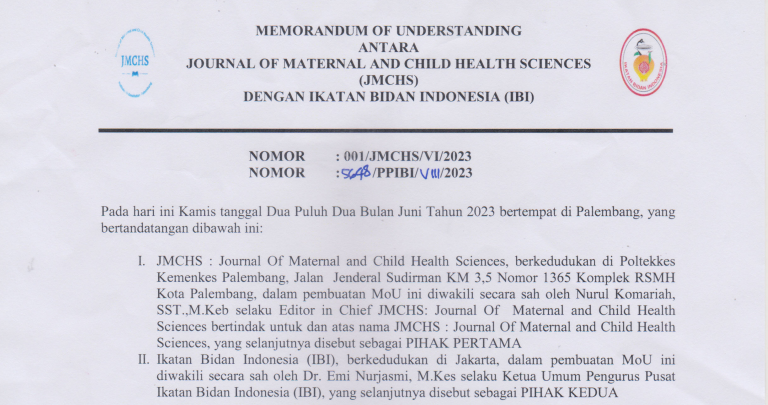THE RELATIONSHIP BETWEEN KNOWLEDGE AND ATTITUDES WITH PREMARITAL SEXUAL BEHAVIOR AT THE AR-RAHMAN REHABILITATION CENTER IN PALEMBANG CITY
Abstract
Low sexual knowledge and an increase in negative sexual attitudes in Indonesia cause risky sexual behavior. This is a serious problem that causes an increase in the incidence of young pregnancies, transmission of sexually transmitted infections, and abortions. The purpose of the study was to determine the relationship between sexual knowledge and attitudes to sexual behavior at the Ar-Rahman Rehabilitation Center. This research method is a quantitative research with a cross-sectional approach. The sample was taken from the total population, namely 30 clients at the Ar-Rahman Rahabilitasi Center in Palembang City. The data analysis used was univariate analysis and bivariate analysis of the chi-square statistical test with α<0.05 and a CI of 95%. The results of the study based on the chi-square statistical test showed that there was a significant relationship between attitudes and premarital sexual behavior with p-value=0.04 and there was no relationship between knowledge and premarital sexual behavior with p-value=0.399. It is hoped that there will be cooperation between the Rehabilitation Center and health workers in providing education on premarital sexual prevention.
Copyright (c) 2024 Journal of Maternal and Child Health Sciences (JMCHS)

This work is licensed under a Creative Commons Attribution-ShareAlike 4.0 International License.
Authors who publish with this journal agree to the following terms:
- Authors retain copyright and grant the journal right of first publication with the work simultaneously licensed under a Creative Commons Attribution License that allows others to share the work with an acknowledgement of the work's authorship and initial publication in this journal.
- Authors are able to enter into separate, additional contractual arrangements for the non-exclusive distribution of the journal's published version of the work (e.g., post it to an institutional repository or publish it in a book), with an acknowledgement of its initial publication in this journal.
- Authors are permitted and encouraged to post their work online (e.g., in institutional repositories or on their website) prior to and during the submission process, as it can lead to productive exchanges, as well as earlier and greater citation of published work












